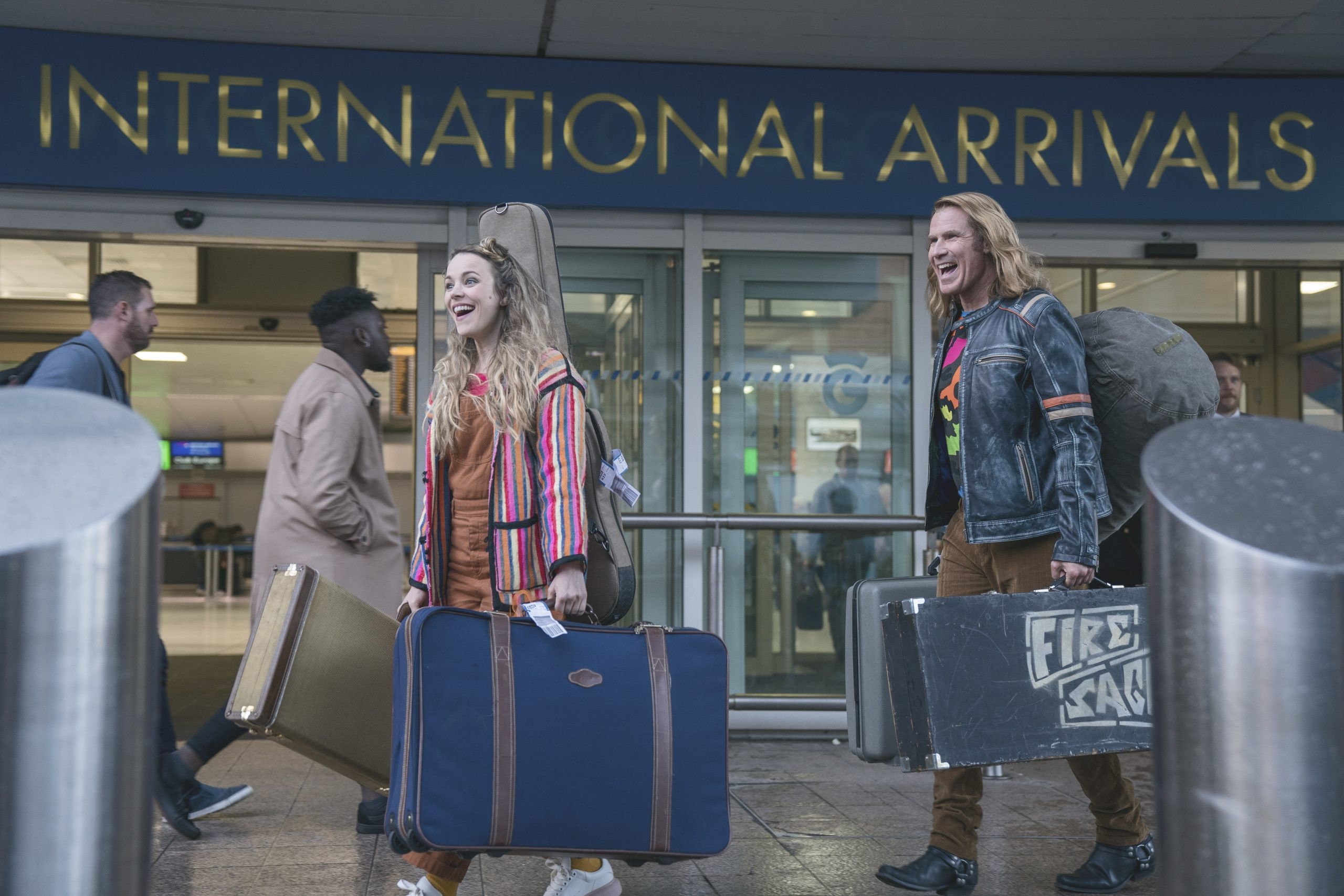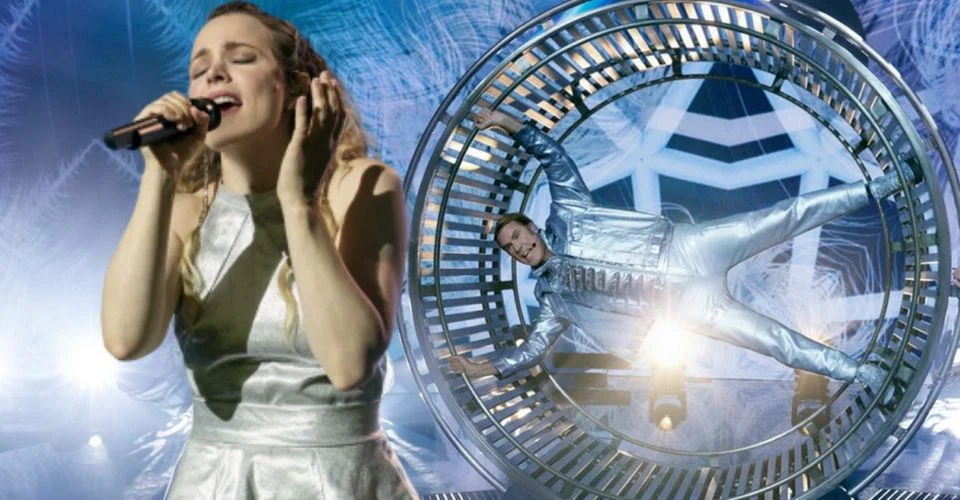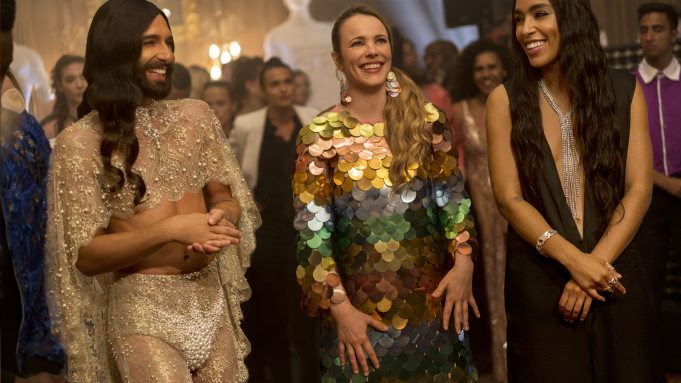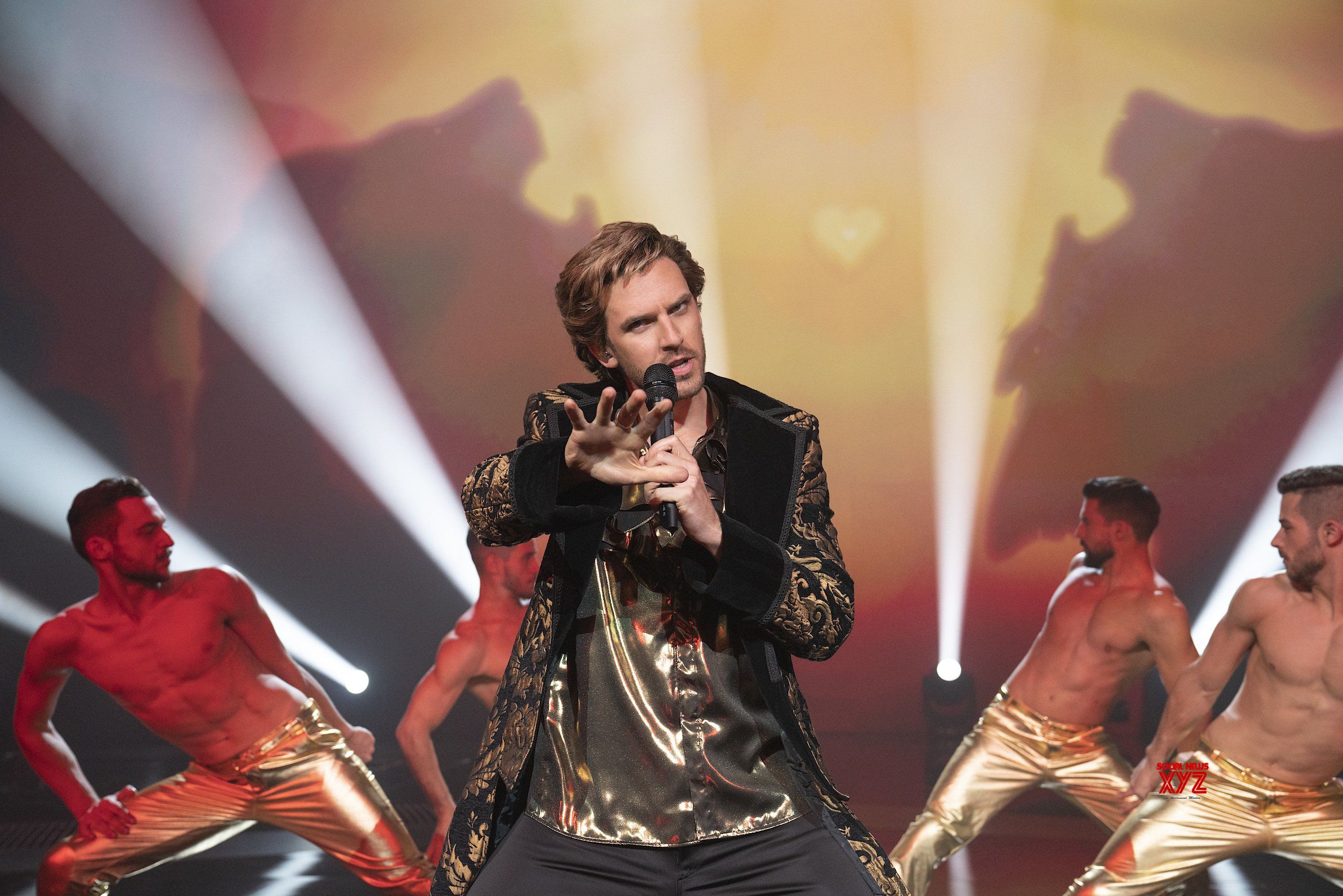Earlier in the pandemic, Will Ferrell was one of the unfortunate celebrities roped into that viral sing-along of John Lennon’s “Imagine,” organised by Gal Gadot. It was well-meaning but tone deaf – both figuratively and literally. Ferrell’s career-long love of singing, demonstrated in Step Brothers and elsewhere, made him an obvious candidate to participate. And even though he appears on screen for less than four seconds, you can sense his ambivalence about the value of the project.
Ferrell has sandwiched a much wiser sing-along in the middle of his new movie, Eurovision Song Contest: The Story of Fire Saga, which again lets him demonstrate his pipes on the big screen – or small screen, as the movie has just debuted on Netflix. The scene is a party at an Edinburgh mansion, where Ferrell’s Lars and his singing partner, Sigrit (Rachel McAdams), have found themselves after their band, Fire Saga, has become Iceland’s entrant in the titular contest watched by hundreds of millions. It’s a Eurovision tradition at such a party to have what’s called a “song-a-long,” an improvisational group song where anyone can jump in to harmonise, and take the song off on their own musical tangent.
It’s the joyous centrepiece to a film that consistently celebrates joy. As the song morphs from Cher’s “Believe” to Madonna’s “Ray of Light” to ABBA’s “Waterloo” to Black-Eyed Peas’ “I Gotta Feeling,” a bevy of former Eurovision winners join the cast members we’ve met, delivering a medley that builds in intensity and sheer ecstasy. What’s more, the scene is super LGBTQ positive, featuring several non-binary performers, as well as one performer who cheerfully explodes our notion of the ideal female form. How do you feel about applauding in your own living room? Eurovision Song Contest virtually demands it, and this scene would make the film worth watching even if it weren’t surrounded by an hour of hilarious comedy on either side.
The premise is right in Ferrell’s wheelhouse. Throughout his career, the SNL alum has gone back to the comedic well of the character involved in some kind of niche competitive pursuit, be it ice skating, NASCAR racing or even anchoring the evening news. He may have been born to play the role of a delusional Icelander whose dream it is to win the Eurovision Song Contest. That real-world contest is a delightfully bombastic affair, which at any given moment captures interpretations of popular music through a many-splendoured but uniquely European lens. The opportunities for satire abound.
And this is where Eurovision Song Contest starts surprising you, and never lets up. Lars and Sigrit, though possibly the worst candidates for Iceland’s entry in the contest, are not hopeless boobs who would be better sheep farming than singing. They are actually totally credible musicians, and are mostly undone by a technical gaffe during the performance where they hope to qualify. Their biggest obstacle to success is not that they can’t write music, sing songs or play instruments, but that they can’t get out of their own way. Fortunately, fate – and elves – have a plan to get them on the show.
Yes, elves. One of the many endearing Icelandic truths this movie teases is that some legitimate percentage of the population believes that elves exist. Lars is not among them – a funny extra-textual joke, considering Ferrell broke out in the movie Elf – but Sigrit is. She thinks that by leaving offerings of booze and biscuits, the mythical sprites might help make their Eurovision dream a reality. Given the outcome, one would be hard pressed to call her wrong. Now, if only Lars would notice that the real pot of gold at the end of his rainbow – Sigrit, who is “probably not” his sister – has been in front of him all along.
Again, you’d have every expectation that Ferrell and company (he’s also a writer and producer, with David Dobkin directing) might lean into their lesser instincts and play this material too broadly. After all, the movie begins with a terrific, albeit imagined, music video of Lars and Sigrit dressed like Norse gods, playing synthesizers on a snow-covered cliff, singing a techno love song about volcanoes. But this movie never punches down. Every parody is of the loving variety. Every piss take is like a warm hug.
Lars is not sufficiently different from larger-than-life characters Ferrell has played before – literally larger than life, as Ferrell stands 6’3.” He can be oafish and is blind to essential truths about himself. What he is not is a caricature. He’s just a young – well, increasingly less young – Icelandic man with a sense of humour about himself and his own situation, and an eagerness to please the patrons of the town pub when they yet again request the band’s silly signature song, “Jaja Ding Dong.” This is as seriously as Ferrell takes comedy, while still remembering to be funny.
The real revelation in the film, though, is Rachel McAdams. She’s always been someone with sharp comic timing and radiating charisma, but Sigrit is a creation of unsurpassed sweetness. She’s kind and earnest and has stars in her eyes for Lars, seeing in him what the rest of the world can’t. She sparkles, and that’s not just the oversized sequins on the fabulous dress she wears to that Edinburgh mansion.
The film’s restrained approach to absurdity extends to its so-called villains, who are villains in name only. Other Eurovision singers played by Dan Stevens, as the opera-inflected Russian stud Lemtov, and Melissanthi Mahut, as the Greek diva Mita, are obstacles only because they prevent Lars and Sigrit from seeing what’s right in front of them. A lesser film would have made them stereotypes just waiting for the moment in the narrative when it’s time for their righteous comeuppance. Eurovision Song Contest is kinder and gentler than that. It has an optimism about human nature that’s rare in a movie that also produces this many laughs.
It may be that some of the film’s meaner instincts were stripped by its obvious partnership with the veritable Eurovision institution – if not an actual financial partnership, then at least a spiritual one informed by Ferrell’s own love for the contest. The benevolence born of this love has challenged Ferrell et al to be better comedy writers, preventing them from falling back on the lowest common denominator. The grace they’ve delivered instead is such, in fact, that Eurovision Song Contest defies another truism about comedy – that less is more – by unabashedly running for a full two hours. In this film as in the contest itself, more is more.




